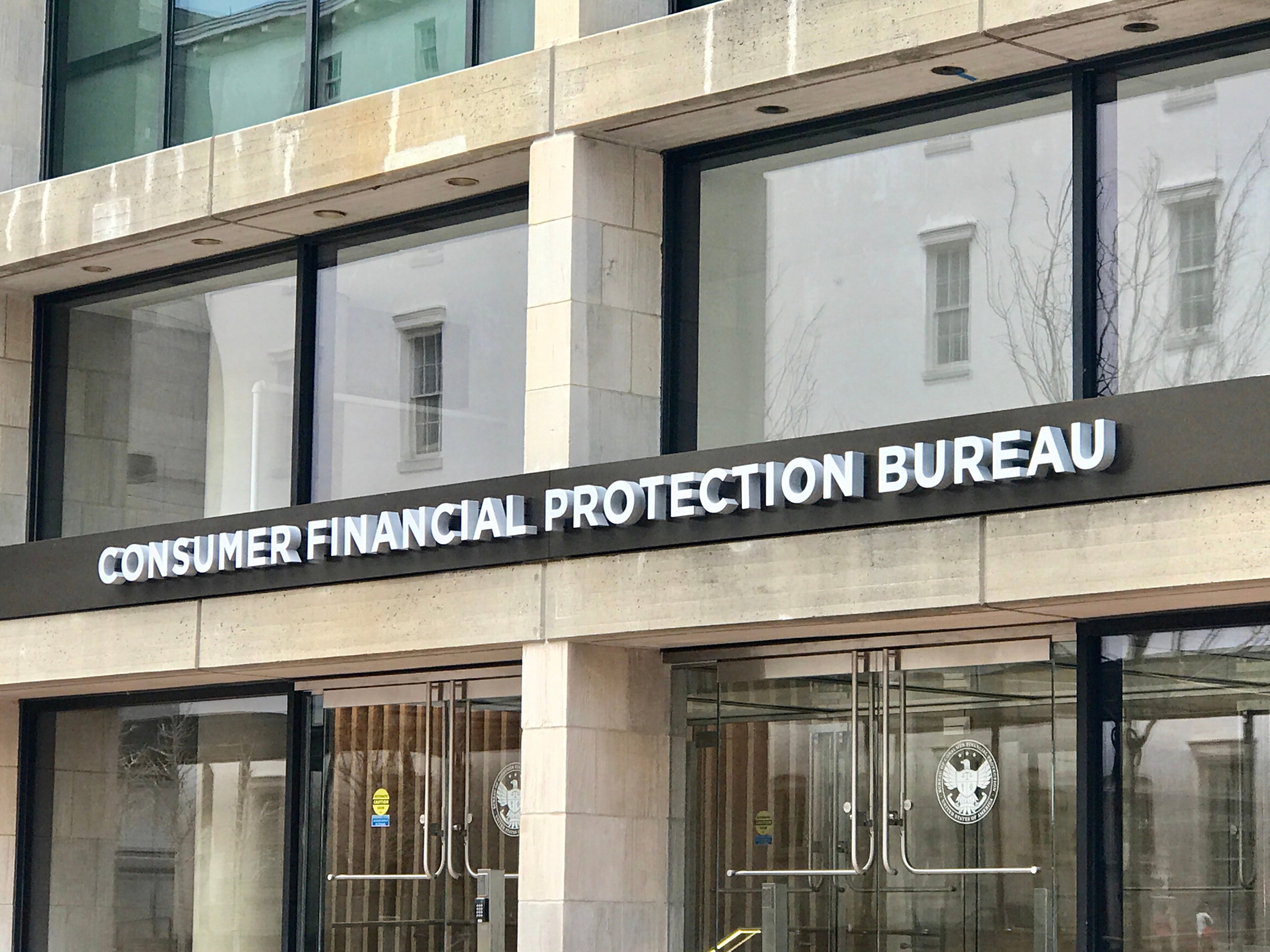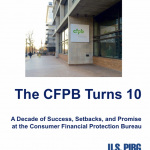
The CFPB Turns 10
This report recaps the Consumer Financial Protection Bureau’s results for consumers over the past 10 years, the steps taken to return the CFPB back to its mission after three years of retrograde decisions under the Trump Administration, and our recommendations for CFPB action moving forward.

Downloads
U.S. PIRG Education Fund

Introduction
The Consumer Financial Protection Bureau (CFPB) opened its doors on July 21, 2011, one year after President Barack Obama signed the Dodd-Frank Wall Street Reform and Consumer Protection Act. Typically referred to as “Dodd-Frank” or “Wall Street Reform,” this law notably created the CFPB, a new federal agency designed to ensure “that markets for consumer financial products and services are fair, transparent, and competitive.”
In short, the CFPB was set up in the aftermath of the 2008 economic crash caused, in large part, by Wall Street malfeasance to be the country’s first dedicated watchdog for consumers in the financial marketplace. Unscrupulous businesses drove millions of Americans down the road to financial ruin in the late 2000s. The creation of the CFPB soon afterward was a necessary — and hard-won — victory for consumers.
The CFPB has shown its promise in its first 10 years of operation, as well as its resiliency in the face of efforts to defund and defang it and to undermine its mission during a recent period of questionable leadership at the Bureau.
This report recaps the CFPB’s results for consumers over the past 10 years, the steps taken to return the CFPB back to its mission after three years of retrograde decisions under the Trump Administration, and our recommendations for CFPB action moving forward.
Topics
Find Out More


Safe At Home in 2024?

What the California Consumer Privacy Act means for you


